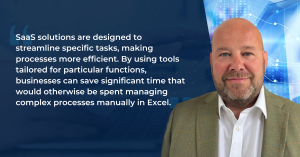2. Customer Relationship Management (CRM)
Using Excel to manage customer relationships can quickly turn into a nightmare. CRMs like Salesforce, HubSpot, and Zoho are built to handle the complexities of customer data, sales pipelines, and marketing automation. They provide real-time analytics, integration with other tools, and automation capabilities that Excel can't replicate, ensuring that no prospect interaction falls through the cracks.

















